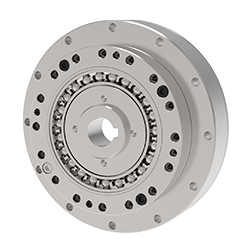Torque density is a measure of the amount of torque that can be transmitted by a servo gearbox in relation to its size or weight. In other words, it refers to the amount of torque that can be produced per unit of volume or mass of the gearbox.
A high torque density servo gearbox can transmit a large amount of torque while taking up a small amount of space or weight, making it ideal for applications where space and weight are limited. This is especially important in industries such as aerospace, robotics, and automation, where minimizing weight and maximizing power is critical.
Several factors can affect the torque density of a servo gearbox, including the gear ratio, gear tooth geometry, gear materials, and manufacturing methods. Helical and planetary gear designs are often used in servo gearboxes because they offer high torque densities due to their compact designs and ability to handle high torque loads.
High-quality materials such as hardened steels, ceramics, and composites can also improve the torque density of a gearbox by reducing friction and wear, and increasing the strength and stiffness of the gears. Additionally, advanced manufacturing techniques such as precision grinding and finishing can improve gear tooth accuracy and reduce gear noise and vibration, resulting in a more efficient and compact gearbox.
Overall, torque density is an important factor to consider when selecting a servo gearbox for a particular application. By choosing a gearbox with a high torque density, engineers and designers can optimize the performance of their machines and systems while minimizing the space and weight requirements.
GSL Series Strain Wave Gearboxes have high torque density with low inertia.

 U.S Manufacturing
U.S Manufacturing